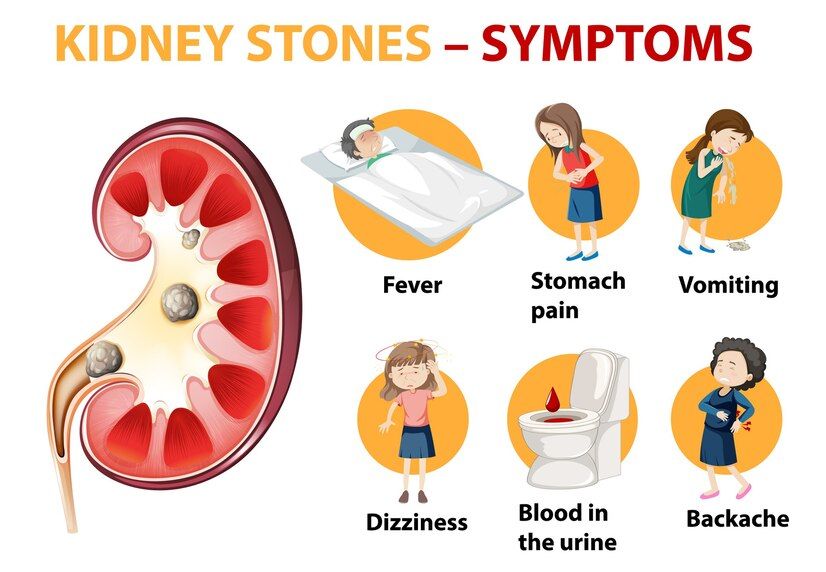Kidney stones, also known as renal calculi, are hard deposits made of minerals and salts that form inside the kidneys. They can vary in size, ranging from a grain of sand to a pea-sized stone or even larger. Kidney stones often do not cause any symptoms until they move around within the kidney or pass into the ureter, the tube connecting the kidney and bladder. When this happens, they can cause intense pain and discomfort.
Here are the common symptoms associated with kidney stones:
- Severe Pain: This is often the hallmark symptom of kidney stones. The pain can be sudden and sharp, typically felt in the back, side, lower abdomen, or groin area. It’s often described as one of the most severe types of pain experienced, often fluctuating in intensity as the stone moves.
- Painful Urination: When the stone moves into the ureter, it can cause pain or a burning sensation during urination. This occurs because the stone irritates the lining of the urinary tract.
- Blood in Urine: The presence of blood in the urine (hematuria) is another common symptom of kidney stones. The urine may appear pink, red, or brownish in color.
- Nausea and Vomiting: Many people with kidney stones experience nausea and vomiting, often as a result of the severe pain.
- Frequent Urination: You may feel the need to urinate more often than usual, or in smaller amounts.
- Fever and Chills: In some cases, an infection may accompany kidney stones, leading to fever and chills.
- Cloudy or Foul-Smelling Urine: This can indicate an infection or the presence of minerals, such as uric acid, in the urine.
- Difficulty Passing Urine: Sometimes, a larger stone can block the flow of urine, causing difficulty in urination or even complete blockage, which requires immediate medical attention.
It’s important to note that not everyone with kidney stones will experience all of these symptoms. The severity of symptoms can vary depending on the size of the stone, its location within the urinary tract, and whether it causes any complications such as infection or obstruction.
If you suspect you have kidney stones based on these symptoms, it’s crucial to seek medical attention promptly. A healthcare provider can confirm the diagnosis through imaging tests and recommend appropriate treatment to relieve symptoms and prevent future stones. Early intervention can also help prevent complications associated with kidney stones.






Comments